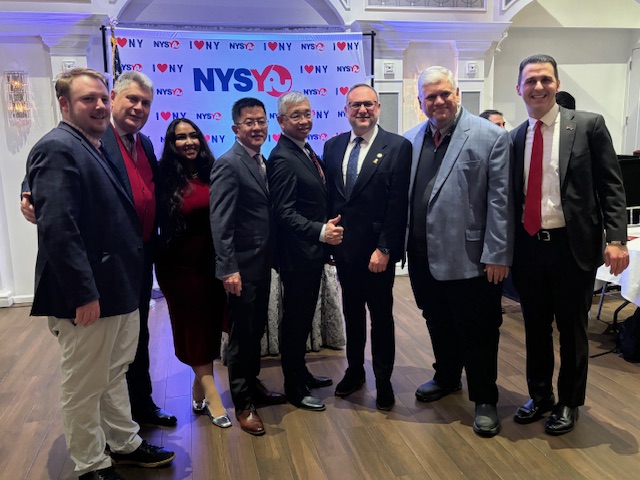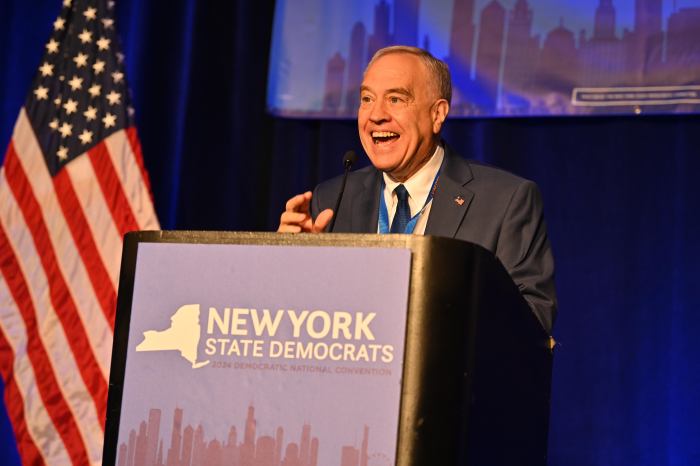The latest New York Times/CBS News poll had bad news for Congress, whose support is down to single digits. But it had even worse news for the Republic. Americans’ distrust of government, the pollsters found, is “at its highest level ever.”
A lot of this ire is focused on Congress, which an overwhelming majority believe is incapable of acting on behalf of the nation as a whole, but it has come to take in all of Washington. The poll’s findings can be summed up in the words of one respondent, a small-businesswoman from Arizona. “Probably the government in Washington could be trusted at one time,” she told the Times, “but now it seems like it’s all a game of who wins rather than what’s best for the people.”
When so many Americans believe that their representatives in Washington do not have their best interests in mind, something is desperately off-kilter. It means that Americans feel betrayed by how the political class operates.
So the question becomes what can be done to restore the people’s trust in government. May I suggest it involves more than changing policies. It means paying attention to the values that people would like to see embodied in government.
It is a fact of life that American voters respond to likability — a sense of connection — in their candidates. But that’s not how they judge politicians once they’re in office. Instead, they really do care about how elected officials govern.
To start, they want fairness from Washington. Whatever you think of the Tea Party or Occupy Wall Street, both have touched a nerve, a sense that our political leaders have not just grown distant from the concerns of ordinary Americans, but actively discriminate against them in one way or another. I’ve always been impressed by the importance Americans place on fairness; they strive to be fair to those around them, and they expect government to do the same.
They also want government to be open. This is not a blanket pronouncement — where national security and defense are concerned, or where congressional negotiators need space to find common ground without being forced to posture for the cameras, there is a place for secrecy. But transparency ought to be the rule. Secrecy feeds suspicion and distrust of government. Politicians must be sensitive to this.
Speaking to audiences around the country, I’ve also been struck by the deep thirst for accountability in Washington. It is very hard to determine who’s responsible for any given situation in the federal government — so many people have their hands on promoting or blocking a given initiative, it can seem that the entire political system is designed to shrug off responsibility.
When the economy is floundering, Americans are desperate for work, and Washington seems incapable of coming to grips with the nation’s needs, this is a huge problem. It is hard to respect institutions whose leaders refuse a forthright accounting of, or deny responsibility for, their failures.
Americans do not expect miracles or understate the difficulties of governing. They do not expect a single person to right the ship of state. Quite the contrary. They want a collective effort, a sense that people in government, regardless of party, are rolling up their sleeves and working together to resolve their differences.
Americans have some tolerance for disagreement, but not to the point of gridlock — in the end, they prefer cooperation, not confrontation. And they abhor the sort of brinksmanship that has become a Washington specialty, with its last-minute negotiations and short-term fixes. We have serious long-term problems, and Americans want to see their elected officials working on them. They want remedies, not filibusters and scorched-earth politicking.
Finally, they want honesty. Americans really do want to know the scope of the problems they confront and to make up their own minds about them. They resent politicians who paper over the difficulties of the problems or toss off inadequate solutions to really tough problems. There is, in the country at large, a thirst for basic facts, not spin. The people can handle the truth, and they deserve no less.
Rebuilding trust in American government will require more than changes in rules or policy. It will rest on the manner in which our elected officials conduct the business of government, and their willingness to embrace fairness, openness, accountability, cooperation, competence and honesty.
Lack of trust in government is a far more serious problem than most politicians believe, one that cannot be resolved easily. The solution can only come from a patient, long-term effort to return to our fundamental values and instincts.
Lee Hamilton is Director of the Center on Congress at Indiana University. He was a member of the U.S. House of Representatives for 34 years.




















